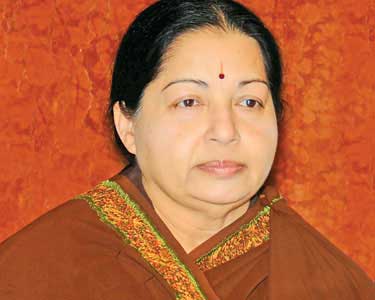 FP Staff Oct 8, 2014 14:57 IST
FP Staff Oct 8, 2014 14:57 IST
With the Karnataka High Court rejecting former Tamil Nadu CM J Jayalalithaa's bail petition, her legal counsel, including senior advocate Ram Jethmalani, has come in for criticism by several legal experts for their handling of her bail plea.
This report in the Times of India quotes a senior legal expert as saying that the legal team of Jayalalithaa acted like 'novices', questioning the counsels move to approach the court registrar after a judge had earlier adjourned Jayalalithaa's bail petition.
And with the Karnataka High Court rejecting Jayalalithaa's bail plea on Tuesday, the counsel's decision to seek bail for all four accused at the same time also evoked criticism from senior lawyers, who, asquoted by the Times of India, were of the opinion that if Jaya had sought bail alone, there were more chances of her being granted bail and the three other accused could have benefited later by citing her example.
Another senior legal officer had this to say:
Their decision to seek bail for all four, including the relatively young and healthy V N Sudhakaran, simultaneously defies logic," a veteran prosecutor of a central law enforcement agency told TOI. "If a case involves more than one accused, it is not uncommon practice among lawyers to move the case of the fittest among all for bail first," he said. "In this case, they ought to have first bailed out Jayalalithaa, who had age, health and societal status on her side."
While Jethmalani as well as counsels for Sasikala and Sudhakaran questioned the trial court's verdict convicting them in the case, stating that the order was incorrect as 'the very basis of its evaluation of assets was flawed', HC Justice AV Chandrashekhara appeared to be in no mood to grant Jayalalithaa bail, observing that corruption amounted to a violation of human rights and led to economic imbalance.
His decision to deny bail could well be based on a series of recent Supreme Court orders that have shown no leniency towards cases of corruption among government officials.
Among those cases that the verdict could have been based on was a recent May judgement, relating to a case involving BJP leader Subramanian Swamy and CBI Director, Ranjit Sinha, when a Constitution bench led by then Chief Justice of India RM Lodha declared that 'corruption is an enemy of the nation', as this report in The Hindu states.
The verdict, though, could not have been worse for supporters of AIADMK chief J Jayalalithaa, who have been protesting across the state of Tamil Nadu.
On Tuesday afternoon, when Jayalalithaa's bail plea came up for hearing at the Karnataka HC, supporters gathered at the party office in Chennai as well as at areas around the High Court, where section 144 has been imposed. At a little before 4 pm, when media channels reported that Jayalalithaa had been granted conditional bail, firecrackers were lit and wailing supporters were seen erupting in joy. But their happiness was short lived. Within the next half hour, while the HC judge completed reading out his verdict, it was known that Jayalalithaa was denied bail and would continue to remain in prison.
Soon, angry supporters resorted to violence, attacking businesses and vehicles owned by residents of the neighbouring state.
This article in the The Indian Express reports how journalists in the courtroom began informing their newsrooms about the verdict, even before it was read out.
"As the judge began dictating his order — noting at first the SPP’s stand — many of those present in the court were typing the message “bail granted” on their phones or passing on similar messages to others standing outside the hall. In the 10 minutes that the judge was dictating his orders, news spread that Jayalalithaa had been granted conditional bail. Many of the supporters broke into a jig outside the court premises."
Jayalalithaa's counsel is now likely to move the Supreme Court as early as Wednesday, challenging the High Court's decision to deny the former CM bail. But this decision has also come in for criticism with senior advocates comparing it to the likes of printing a cinema poster.







